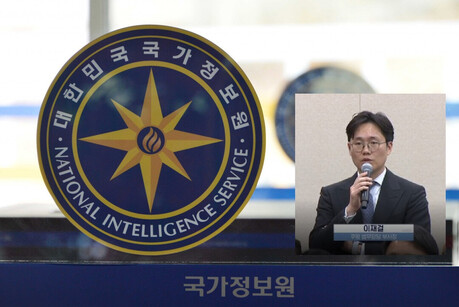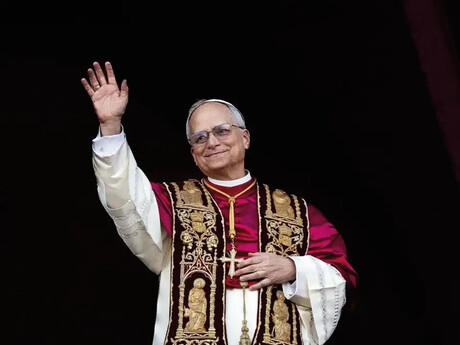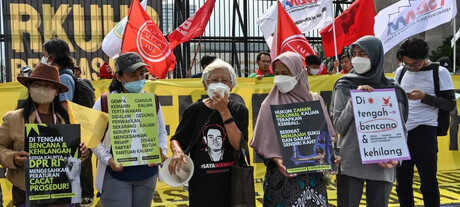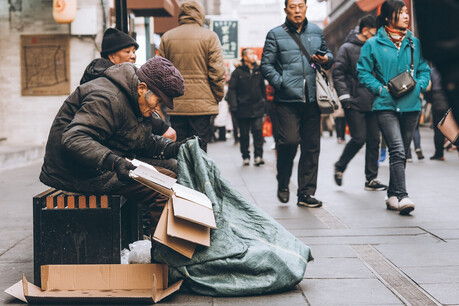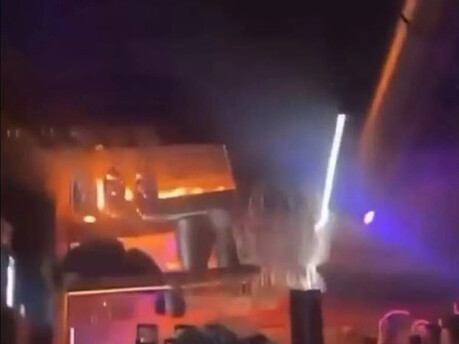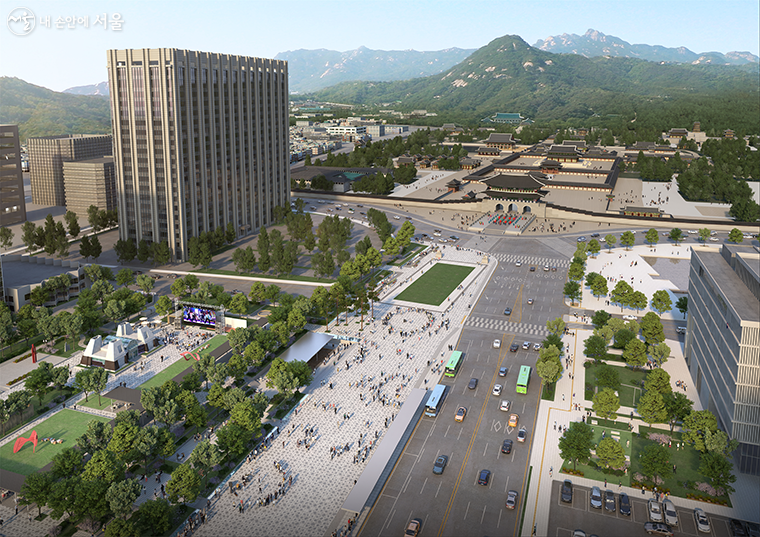
(C) Seoul Metropolitan Government
SEOUL – A proposal by the Seoul Metropolitan Government to erect a Korean War memorial in the iconic Gwanghwamun Square has sparked a fresh, highly charged confrontation between City Hall, led by Mayor Oh Se-hoon, and the central government's ruling Democratic Party of Korea (DPK) bloc. The clash comes just months ahead of next June's crucial local elections, fueling speculation that the dispute is politically motivated.
Prime Minister Kim Min-seok, a prominent figure in the DPK and a potential candidate for the Seoul mayoralty, took the unusual step of personally intervening on Monday. While surveying the construction site, Kim openly questioned the project’s public support and ordered the Ministry of the Interior and Safety to investigate any potential administrative or legal irregularities.
The controversial project, titled the "Garden of Gratitude," is slated for completion by April at a cost of 73 billion won ($50 million). It plans to feature 23 stone sculptures resembling raised rifles, dedicated to honoring the 22 countries that supported South Korea during the 1950-53 Korean War.
The ruling bloc's core argument centers on the historical and cultural sanctity of Gwanghwamun Square. Critics contend the memorial risks eroding the square's established identity as a symbol of Korean history and language. Bang Hak-jin, a director at the Center for Historical Truth and Justice, warned that a war memorial would "undermine its cultural role," which is embodied by surrounding institutions like the Sejong Center and the Chosun Language Society Memorial. Rep. Kim Jun-hyuk of the DPK, a former history professor, argued that the location, adjacent to Gyeongbok Palace, is the nation's "most important historical zone," suggesting alternative sites like Yongsan Park would be better suited for a U.N. memorial.
This is the latest in a series of disputes pitting Mayor Oh, a member of the opposition People Power Party (PPP), against the DPK. The central government has recently escalated its criticism of other key Oh-led initiatives.
Earlier this month, a Supreme Court decision backed the city's ordinance to relax development restrictions, potentially allowing skyscrapers up to 145 meters near the UNESCO World Heritage-listed Jongmyo Shrine. Following the ruling, the Korea Heritage Service issued a stern warning that the development poses a "grave threat" to the shrine's value and could lead to UNESCO revoking its World Heritage status. Prime Minister Kim Min-seok publicly criticized this project as well, stating that building towers in the area "suffocates the area’s culture, economy and future."
Additionally, the central government has scrutinized the city’s new Hangang Bus river ferry service after a vessel ran aground, leading to a temporary suspension of operations. Kim directed Seoul City to collaborate with the Ministry of the Interior and Safety for a "thorough investigation" into the service’s safety.
Mayor Oh Se-hoon has responded aggressively to the centralized criticism, denouncing it as a politically motivated attack meant to constrain his tenure ahead of the elections. Taking to social media, Oh rejected the central government’s interventions as "unfairly denigrating Seoul’s initiatives." He specifically challenged the Prime Minister to an open debate on the future development of Seoul, stating that safety issues like the ferry accident should not be exploited for "political attack" but require a "calm review and real improvement."
With local elections looming, the dispute over the Gwanghwamun memorial and other city projects underscores a tense political rivalry, casting Mayor Oh's ambition for another term directly against the ruling bloc’s efforts to reclaim one of the nation’s most important political posts.
[Copyright (c) Global Economic Times. All Rights Reserved.]


















